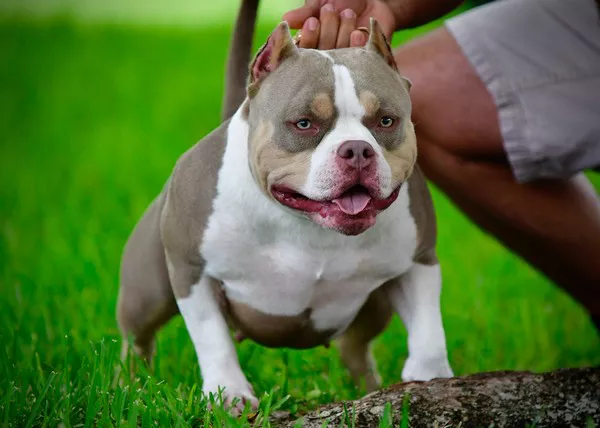The American Bully is a breed that has gained popularity for its muscular build, loyalty, and affectionate nature. When considering if an American Bully is a suitable family companion, several factors need to be examined. This article aims to delve into the breed’s temperament, behavior with children and other pets, training requirements, health considerations, and overall suitability as a family pet.
Understanding the American Bully Breed
The American Bully is a relatively new breed, developed in the United States during the 1990s. It is often mistaken for the American Pit Bull Terrier, but it is a distinct breed with specific characteristics. American Bullies are known for their:
- Muscular Build: They have a strong and athletic physique, reflecting their ancestry in bull-baiting and later as companion dogs.
- Temperament: They are generally affectionate, social, and eager to please their owners.
- Versatility: American Bullies can adapt well to various lifestyles, from active outdoor activities to indoor relaxation.
Temperament and Behavior
American Bullies typically exhibit the following temperament traits that can make them good family dogs:
- Affectionate: They are known for their affectionate nature towards their families and often form strong bonds with their owners.
- Friendly: When properly socialized from a young age, American Bullies can be friendly towards strangers and welcoming to visitors.
- Loyal: They are loyal and protective of their families, making them good watchdogs.
- Playful: Many American Bullies retain their playful demeanor well into adulthood, enjoying interactive play with family members.
Interaction with Children
One of the most critical factors in determining if an American Bully is a good family dog is how they interact with children:
- Gentle Nature: When raised with children and socialized properly, American Bullies can be gentle and tolerant of children’s behaviors.
- Supervision: As with any dog breed, supervision is essential when American Bullies are around young children to prevent accidental rough play or mishandling.
- Sturdy Build: Their muscular build can handle the energy of children, but interactions should always be supervised to ensure safety for both the dog and the child.
Compatibility with Other Pets
American Bullies can coexist well with other pets in the household under the right conditions:
- Early Socialization: Introducing them to other pets early and gradually can help promote positive interactions.
- Training: Consistent training and positive reinforcement techniques can teach them to cohabit peacefully with other animals.
- Prey Drive: Some American Bullies may exhibit a higher prey drive, particularly towards smaller animals, so caution and supervision are advised.
Training and Exercise Needs
To thrive as family pets, American Bullies require regular training and exercise:
- Training Consistency: They respond well to positive reinforcement training methods, including praise, treats, and consistency.
- Socialization: Early and ongoing socialization with various people, animals, and environments is crucial to shaping their behavior.
- Exercise Requirements: American Bullies are moderately active and benefit from daily walks, playtime, and mental stimulation to prevent boredom and destructive behaviors.
Health Considerations
Understanding the health considerations associated with the breed is essential for prospective owners:
- Common Health Issues: American Bullies may be prone to certain health conditions, including hip dysplasia, allergies, skin issues, and obesity.
- Regular Veterinary Care: Routine veterinary check-ups, vaccinations, and preventive care are necessary to maintain their health and well-being.
- Nutrition: Providing a balanced diet appropriate for their age, size, and activity level can help prevent obesity and promote overall health.
Suitability as Family Pets
Ultimately, the suitability of an American Bully as a family pet depends on various factors:
- Family Lifestyle: They can adapt well to various family lifestyles, whether living in an apartment or a house with a yard, as long as their exercise needs are met.
- Owner Dedication: Committed owners who provide proper training, socialization, and veterinary care can enjoy a loving and loyal companion in the American Bully.
- Children and Pet Interaction: Supervision and teaching children respectful behavior towards pets are crucial for fostering a harmonious relationship.
See also: Do Aussiedoodles have health problems?
Conclusion
In conclusion, an American Bully can be a good family dog for owners who are willing to invest time and effort in their care, training, and socialization. With their affectionate nature, loyalty, and adaptability, American Bullies can form strong bonds with their families and thrive in a loving home environment. Understanding their temperament, exercise needs, and health considerations is key to ensuring a positive experience with this breed as a family companion.
By providing proper care, training, and a nurturing environment, an American Bully can indeed be a wonderful addition to many families seeking a loyal and loving canine companion.


